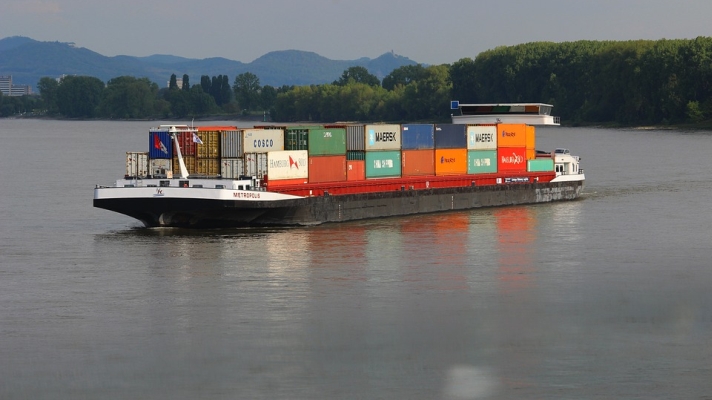The transport of goods by water has fallen sharply due to the corona crisis. Inland navigation had already been losing ground in the transport of mineral fuels, but the corona crisis has made this much worse. Recovery is not expected until 2021.
This emerged from interviews with 25 Dutch inland shippers held in April and May 2020 conducted by Topsector Logistiek. Nevertheless, Dutch shippers are predominantly positive about the course of the corona crisis. Although the consequences are severe and far-reaching in the short term, the necessary deliveries are said to continue.
The automotive industry, the energy sector, the oil and gas industry, the food industry (business market), the textile industry and the retail sector are the hardest hit. Less affected is the construction sector, in particular soil, road and hydraulic engineering (GWW). With the exception of tank storage companies, no other sectors related to inland navigation have benefited.
No recovery until 2021
Shippers are responding to the consequences of the corona crisis. The new-build order portfolio at shipyards has almost completely dried up and at the beginning of this year flexible personnel was let go. The main concern among shippers is the lack of a clear perspective on the further course of the lockdown and the economic consequences. It is difficult because the lockdown differs per country and deliveries do not match well because of this. Many shippers have taken measures and are now producing for stock, waiting for the lockdown to ease.
Despite this, the companies spoken to consider 2020 to be a lost year. Real recovery is not expected until 2021. No company expects far-reaching consequences for its own operations. The energy or food supply will not be endangered. ‘It will eventually be business as usual again,’ it is expected.
Lessons learned from lockdown
Shippers have learned from the lockdown: that it is possible to work more remotely from home and that travelling and flying are less necessary. Shippers hope that the corona crisis will be the reason for a push to the energy transition and the digitalisation of transport. Many sustainability projects are now at a standstill, but the desire to invest in the economy during this crisis is widely shared. In addition, there is a great need for legislation making the digital exchange of transport documents legally valid, where physical transfer is still taking place.








